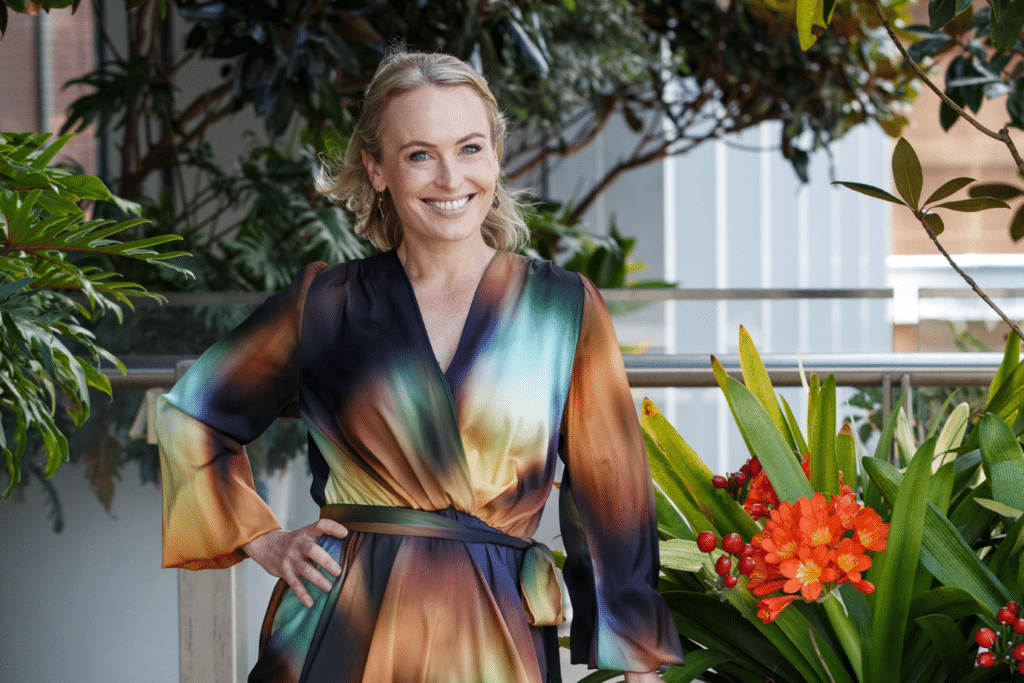Imagine a world where some of the most vulnerable people are subjected to the unimaginable, yet their suffering remains largely hidden in the shadows. For more than one in three Australian girls and almost one in five boys who experience child sexual abuse, this world is their reality.
Pretty confronting statistics. I was one of those statistics, having experienced abuse as a child, and it’s one of the many reasons why I am so passionate about bringing this topic out of the shadows and into the light by talking openly about child sexual abuse and exploitation and what we must do to stop it.
Despite its horrifying prevalence, child sexual exploitation (CSE) is rarely talked about. However, there are some things we can all do in our day-to-day lives as well as steps that industries and businesses can take to help put an end to this horrific crime.
The changing landscape of child sexual exploitation
Online child sexual exploitation is one of the fastest-growing crimes, so much so that the amount of the most severe category of child sexual abuse material has doubled since 2020. With children spending more time than ever online, this is a major threat to the safety of young people everywhere. A study released this week estimates that globally, over 300 million children were subject to abusive behaviours online, in the last year alone.
Unfortunately, the rapidly evolving nature of technology also makes CSE increasingly difficult to prevent, detect, and prosecute. Investigative approaches and companies who want to address this growing problem need support to develop the right resources, skills, and capacity to fight this crime.
ICMEC Australia works with companies – particularly in the financial services sector – governments, and charities to help them develop the knowledge, tools, and abilities to identify, prevent, and report CSE. We do this by delivering a number of programs, such as data products and training, that help to both empower these organisations and connect them in a united fight against CSE.
The only way to put an end to CSE is for organisations across every industry to look at where and how this crime thrives and to put measures in place that directly address it. It’s a collective effort, but by coming together, we can help prevent and stop children being harmed.
Creating a safer world for children
To address CSE, we must first address the significant gaps in the response ecosystem. The confronting truth is that various commercial sectors inadvertently have their digital platforms used by perpetrators seeking to access child sexual abuse material (CSAM). They pay for it via online banking accounts, target and groom children via social media, and share CSAM through communication services, apps and chat platforms.
Thousands of entities hold pieces of the digital evidence puzzle, but because these pieces are not connected, it’s impossible to form a complete picture. This means we all have a role to play in putting a stop to this crime, and that starts with collaboration.
Through our work at ICMEC Australia, we facilitate greater collaboration between industries and organisations through capability building and information and data sharing. To stay across emerging technology innovations, we also have a dedicated catalytic incubator that supports several data and technology projects. By fostering greater transparency, traceability, prosecution, and prevention of CSE, we are contributing to a world where children are safe from the life-changing consequences of this crime.
Another important part of our work is collaborating with law enforcement agencies on the frontlines of detecting and investigating perpetrators of CSE. Despite their pivotal role, the changing landscape of modern technology means they often need more support and resources to uplift their techniques.
Of course, we cannot address CSE without speaking about it – and this is often the hardest part of the process. I get it – there are few topics more distressing and disturbing, so it makes sense that people don’t want to think about it, much less talk about it. However, this only leads to larger gaps in public understanding and advocacy, and it’s in these gaps that this crime thrives.
One of the most significant awareness gaps is in parent-to-child communication. Research shows that while 97 per cent of households with children under 15 have access to the internet, just 52 per cent of Australian parents and carers are having conversations with their children about online safety. This leaves far too many children susceptible to exploitative encounters or material online, highlighting the need for greater awareness and education.
By increasing public awareness, ICMEC Australia drives meaningful change and encourages more proactive measures to protect children. It’s only by having these confronting conversations – whether it’s in our workplaces, in our personal lives, or directly with our children – that we can stand against CSE and create a world without it.
While ICMEC Australia may not work on the frontlines of CSE, it is our privilege to support those who do. Through connection and collaboration, we empower organisations, government agencies, and law enforcement professionals to ensure they are better equipped to tackle this growing problem. Together we can confront the realities of child sexual exploitation and bring justice to the countless vulnerable people who have been forced into silence.
If you or someone you know is experiencing, or at risk of experiencing, domestic, family or sexual violence, call 1800RESPECT on 1800 737 732, text 0458 737 732 or visit 1800RESPECT.org.au for online chat and video call services.
If you are concerned about your behaviour or use of violence, you can contact the Men’s Referral Service on 1300 766 491 or visit http://www.ntv.org.au.
Feeling worried or no good? No shame, no judgement, safe place to yarn. Speak to a 13YARN Crisis Supp


